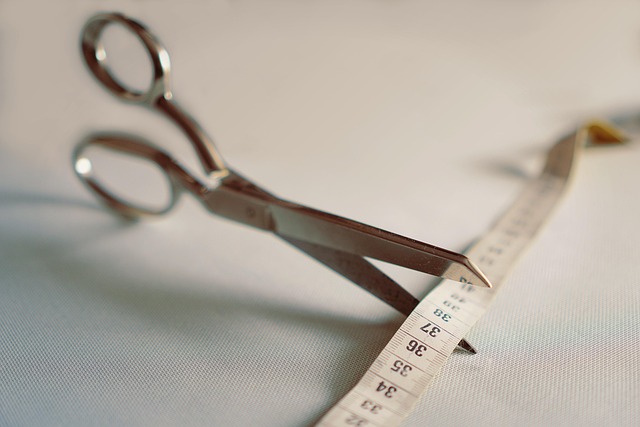If you’ve entered your 40s and notice that your metabolism is slamming on the brakes, then you’re thinking about it. The weight that was once able to be shed with only a few weeks of clean diet and workouts is now stuck on your physique.

Are you familiar with the same? It’s not a coincidence. Research suggests that those who are over 40 have a natural decline of metabolic rate, hormonal changes, and changes in lifestyle which make weight loss more difficult (Harvard Health 2023). But losing the weight you’ve gained after age 40 can be achievable once you know what’s happening and how to modify your lifestyle.
Why Does Weight Loss Get Harder After 40?
1. Your Metabolism Slows Down
At the age of 40, your metabolism rate (RMR) is expected to fall approximately 5% per 10 years (National Institute of Aging 2022). This means that your body burns less calories when you’re not working and it becomes easy to gain weight, and harder to shed it.
Solution The strength training program is among the most effective strategies to counter a slowing metabolism. Muscle mass naturally decreases as you age, but putting on weights at a minimum of 2-3 times a week can help preserve and increase muscle mass that helps keep your metabolism in top shape.
2. Hormonal Changes Work Against You
In women, menopausal symptoms include the loss of estrogen and can cause abdominal fat accumulation. On the other hand, have an increase in testosterone levels, which may cause losing muscle mass and the accumulation of body fat.
Solution A balanced diet that is with plenty of proteins, healthy fats and fiber may help regulate hormones. In addition, certain foods such as flaxseeds and soy are rich in phytoestrogens that can aid in balancing estrogen levels in women (Mayo Clinic 2023).
3. Your Daily Routine Has Changed
Between family, work and other obligations, the majority of older people walk less than during their 20s or 30s. Long periods of sitting can slow the metabolism and causes weight increase.
Solution: Add more thermogenesis that is not exercise-related (NEAT) to your routine. This involves activities such as standing while working, walking when you are on calls, or taking stairs instead of taking the elevator. Small changes can yield significant results over the course of time.
4. Stress and Sleep Sabotage Your Efforts
As you get older the stress levels rise because of pressure at work or family obligations. It can also lead to financial concerns. Chronic stress can lead to elevated cortisol levels. This could increase the desire for sugary, high-calorie foods.
Solution The solution is to prioritize sleep and managing stress. Studies have shown that those who don’t get 7 hours of sleep a each night have a higher chance of put on weight (CDC 2023). Try relaxing techniques such as mindfulness, breathing deeply or journaling to help keep cortisol levels under control.
How to Lose Weight After 40 (And Keep It Off!)
1. Focus on Quality, Not Just Calories
If you cut calories too quickly, it can cause your metabolism to slow more. Make sure to eat nutrient-rich foods such as:
Lean proteins (chicken, fish, tofu)
Healthy fats (avocados, nuts, olive oil)
Fiber-rich carbs (quinoa, legumes, vegetables)
2. Build Muscle to Boost Your Metabolism
Training for resistance isn’t a requirement after the age of 40. Doing weights at least three times per week can help preserve muscle mass, improves the amount of calories burned, and helps improve bone health.
Begin by doing exercises using your body weight (push-ups and lunges, squats, etc.) in case you’re just starting out.
Move on to weights or resistance bands to improve muscle activation.
Make sure you do full-body workouts 3 times each week to see results.
3. Move More Throughout the Day
If you’re not able to go into the fitness center, don’t fret. Making your exercise routine more active could be equally efficient.
Walk 10,000 steps per day.
Work while standing.
Make sure you stretch every hour.
Walking after meals can aid digestion and help control glucose.
4. Cut Back on Sugar and Processed Foods
After the age of 40 your body’s metabolism becomes less efficient in processing sugar. This can lead to insulin resistance, making it easier to gain weight.
Solution: Avoid drinking sugary beverages or processed snacks as well as foods high in glycemics. Switch them out for healthy fruits and vegetables, such as nuts, berries and whole grains that are high in fiber to keep blood sugar levels stable. levels.
5. Stay Hydrated
The importance of hydration is often ignored, yet it plays an important role in digestion and metabolism. The lack of water can slow the process of burning calories and cause a rise in hunger.
Drink at least half of your entire body weight, in pounds water each day.
Get your day started by drinking a glass of water to boost your metabolism.
Herbal teas such as green tea are also a natural way to boost metabolism.
Weight Loss After 40 is Possible!
The process of losing weight after 40 isn’t just about adhering to the latest diet trends or spending hours in the gym. You need to implement small lasting adjustments that are in line with your body’s requirements.
Training for strength is the key to increase your daily activity.
Consume foods rich in nutrients that regulate hormones and help support metabolism.
Prioritize stress management and sleeping to stay clear of triggers for weight gain.
To assist you in your struggle to lose weight, we’d like to share with you some enhancement options that will help you along the path:
JavaBurn – Ultimate Metabolism-Boosting Coffee Enhancer
Check out the full review here or visit official website!
Mitolyn– Discover the Benefits, Ingredients, and Why It Stands Out Among Supplements
Read the complete review here or visit official website!
If you have the right plan with the right strategy, you can be in charge of the weight you carry and look at your most at your best, regardless of age.
The most important thing is Persistence over perfect!
Disclaimer
The information provided in this article is for general informational purposes only and does not constitute medical advice. Always consult a healthcare professional before starting any new supplement regimen.


